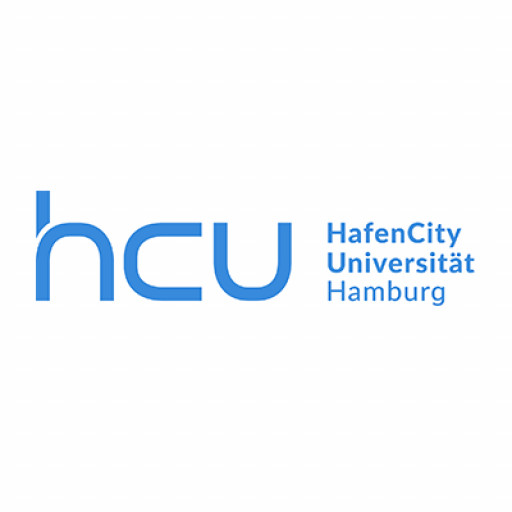The MSc programme will convey knowledge about protection and management of water resources in different climatic zones, as well as design and construction of water supply and wastewater treatment. The study course is divided into basic and advanced courses during the first three semesters. The final semester is dedicated to the Master's thesis.
During the basic courses, students attend lectures on statistics, climatology, hydrology, geodesy, and soils. Students with a background in natural or environmental sciences need to take classes in hydromechanics and hydraulic engineering. Students with a background in civil engineering need to study ecology and water chemistry.
For advanced courses, students choose modules corresponding to 50 credits out of the following:
During the basic courses, students attend lectures on statistics, climatology, hydrology, geodesy, and soils. Students with a background in natural or environmental sciences need to take classes in hydromechanics and hydraulic engineering. Students with a background in civil engineering need to study ecology and water chemistry.
For advanced courses, students choose modules corresponding to 50 credits out of the following:
- Integrated Water Resources Management (five credits),
- International Water Issues (five credits),
- Climate Change (five credits),
- Circular Economy (five credits),
- Soil Water (five credits),
- Ground Water (five credits),
- Aquatic Ecology & Ecotoxicology (five credits),
- Hydro Dynamics (five credits),
- Watershed Management (ten credits),
- Water Quality & Water Treatment (five credits),
- Drinking Water Supply (five credits),
- Urban Water (10 credits),
- Biotechnology (five credits),
- Flood Risk Management (20 credits)
Educational organisation
The courses follow a modular structure. Within the individual modules courses take the form of lectures, seminars, exercises, practical training, project work, specialist excursions, workshops, and student tutorials. The programme is subdivided into a basic course for one semester and a three-semester advanced course. The basic course comprises six mandatory modules. The advanced course consists of two mandatory modules plus five optional-mandatory modules to be selected from ten possible modules (see description of content), which allows the student to specialise, putting emphasis on topics of individual importance. The preparation of a Master's thesis (four months) including a colloquium is the final part of the course.Study abroad unit(s)
No regular study-abroad units are integrated, but are offered from time to time within the framework of current research projects.Internships
An optional module allows students to receive 5 ECTS credits for an internship.Forms of assessment
Examinations take place in the form of exam papers, seminar papers or other written assignments, project work, oral examinations, presentations, and/or other examinations. Written tests are generally not multiple-choice.Course objectives
The graduate programme focuses on the transdisciplinary fields of water and natural resources management and engineering in different climatic zones. It is designed to enable the participants to acquire and expand their professional and methodological qualifications. This programme meets international standards required to pursue and develop candidates' careers within national and international authorities and organisations, engineering and consulting enterprises as well as research-related work.Language requirements
Applicants must prove sufficient proficiency in English. The most widely recognised international tests are:- IELTS: required level all over 6.0
- TOEFL: required level 550 points in paper-based test (PBT), 213 points in computer-based test (CBT) or 79 points in internet-based test (IBT)
Academic requirements
Applicants must hold a Bachelor of Science degree (graduation better than average) in natural sciences or engineering disciplines or similar, with a standard course length of at least six semesters. Good basic knowledge of mathematics and other natural sciences is required.Professional experience is not essential for the course but appreciated and treated as an additional criterion.
Enrolment fees
The enrolment fee is currently about 260 EUR per semester and includes a semester ticket, which entitles students to use public transport in and around Dresden and regional trains within the federal state of Saxony. Additionally, it offers benefits (e.g. price reductions) for many cultural and leisure activities in Dresden.Costs of living
The cost of living varies according to personal needs and preferences. However, about 700 EUR per month represents an average budget for a student in Dresden, including expenses for accommodation, food, items of everyday life, and insurance.(This figure is relatively low compared to other big German cities.)
Arrival support
The university provides counselling via e-mail and personal appointments regarding all matters related to arrival and living in Dresden, guided campus tours, and welcome receptions to which new students are invited to meet other students and professors.For PhD students and researchers, the Welcome Center also provides additional support services concerning visa issues, finding suitable accommodation, etc.
Services and support for international students
TU Dresden International Office offers a tutor network that helps new international students organise their studies. All international freshers are invited to an introduction day at the beginning of their first semester, on which they will also meet their tutors.Furthermore, the International Office's cultural office and various student initiatives provide a plethora of social and cultural activities each semester (guided city tours, trips in the region and to other cities in Germany or neighbouring countries, language tandems, etc.).
Accommodation
It is quite easy to find accommodation in Dresden. Accommodation is available either via the Studentenwerk Dresden or on the private market. Rent for a single room in a student residence is approx. 250 EUR.Private housing can be found online. We recommend moving into a hall of residence at the beginning of your stay in Dresden and later find a place on the private market or in a shared apartment, known in German as a "Wohngemeinschaft".









